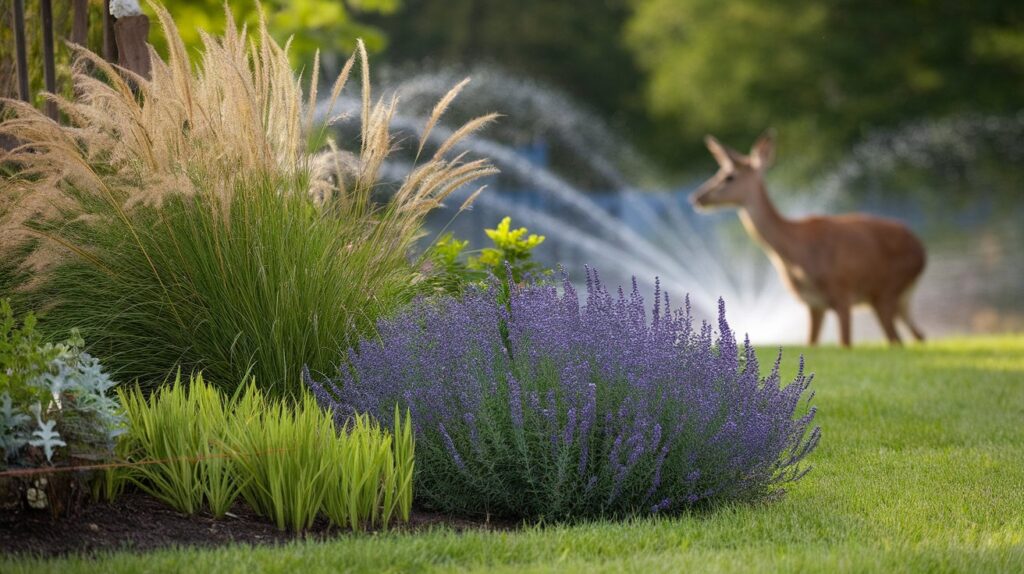Deer can be beautiful creatures to observe, but for homeowners with gardens or landscaping, they often present a significant problem. These majestic animals enjoy munching on your flowers, shrubs, and even your prized vegetables, which can be frustrating and costly. Fortunately, there are several ways to keep deer out of your garden without resorting to harmful or intrusive methods.
Understanding the Problem: Why Deer Are Attracted to Your Garden
Before you can effectively deal with the deer, it’s important to understand why they are attracted to your landscape in the first place. Deer are herbivores, and they naturally seek out lush, green vegetation. Gardens offer a smorgasbord of tasty treats for them, especially in the spring and summer when plants are at their most vulnerable. Deer are drawn to tender plants, such as hostas, tulips, roses, and other ornamental flowers, and they tend to munch on shrubs and trees, too.
Understanding deer behavior can help you create a strategy to keep them away. Deer are also creatures of habit and often return to areas where they’ve previously found food, so once they’ve discovered your garden, they may keep coming back unless you take action.
Start with a Solid Barrier: Fencing That Works
The most effective and permanent way to protect your garden from deer is to install a fence. While there are various types of fences, not all are equally effective at keeping deer out. For example, a simple picket fence may not deter them, as deer are excellent jumpers and can clear fences up to 8 feet tall if they feel the need. The key is to use a type of fencing that is both tall enough and sturdy enough to withstand deer.
One excellent option is a heavy-duty deer fence. This type of fence is designed specifically to keep deer from entering your garden, providing a strong, physical barrier that is difficult for deer to breach. These fences are typically made of durable materials such as woven wire, which offers both strength and flexibility. When installed correctly, a heavy-duty deer fence can be an attractive, long-lasting solution to keeping your garden safe.
Planting Deer-Resistant Vegetation
If installing a fence isn’t an option for you, or if you’re looking to complement your fencing efforts, planting deer-resistant plants can help discourage deer from foraging in your garden. While no plant is completely deer-proof, there are many varieties that deer find unappealing. These include plants with strong scents, prickly leaves, or unpalatable textures.
Some great choices include lavender, rosemary, marigolds, daffodils, and ornamental grasses. By filling your garden with deer-resistant plants, you can create a natural barrier that makes your garden less inviting to deer. Pairing these plants with other deterrents, such as fencing, will give you even better results.
Using Natural Repellents
Another strategy to deter deer is by using natural repellents. There are a variety of repellents available on the market, including those made from garlic, hot peppers, and animal-based scents such as predator urine. These repellents work by irritating the deer’s senses, making them less likely to linger around your garden.
One effective method is to make your own homemade repellent. A mixture of water, garlic, and chili powder can be sprayed on your plants to make them less appealing to deer. While repellents can be effective, they often need to be reapplied after rainfall or over time as their potency fades.
Motion-Activated Devices: Deterrence Without Harm
For homeowners who want a non-invasive solution, motion-activated devices can provide an effective way to keep deer away. These devices often use sound, light, or water to startle and deter deer when they come too close to your garden. For instance, a motion-activated sprinkler system can spray water at the deer, which scares them off without causing harm to the animals or the environment.
There are also motion-sensor lights that emit bright flashes of light when triggered, which can confuse and scare off deer. These devices are an excellent option for homeowners who want to keep their garden safe while avoiding the installation of a full fence or other permanent solutions.
Maintaining a Deer-Free Landscape: Long-Term Strategies
To keep your garden deer-free in the long term, consistency is key. Regularly checking your fence for any weaknesses, repairing holes, and maintaining any repellents you’re using will help ensure your efforts aren’t in vain. Additionally, consider adding visual barriers, such as hanging reflective objects like aluminum foil strips or old CDs. Deer are often startled by sudden movements and bright reflections, so this can be a simple yet effective deterrent.
While managing deer can be challenging, there are many ways to protect your garden without causing harm to the animals or disrupting the beauty of your landscape. By installing a durable and effective barrier, such as a heavy-duty deer fence, and utilizing other deterrents, you can enjoy a deer-free garden for years to come.

